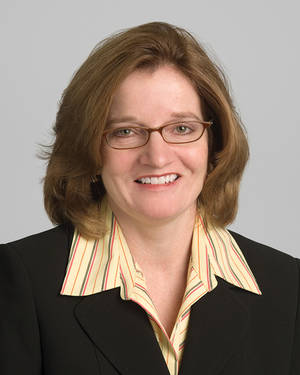Coauthor Dr. Rajendu Srivastava has received grant funding from the National Institute of Child Health and Human Development, has given talks as Chair of Pediatric Research in Inpatient Settings Network, with his time funded by the Child Health Corporation. He’s also been asked to speak in his capacity as a hospitalist investigator with receipt of an honorarium, and has acted as an expert witness on behalf of a plaintiff for Jackson & Campbell P.C. because of his research with neurological impairment and their care. No other authors had any disclosures.
View on the News
“I think we are definitely
seeing this trend,” said Dr. Michelle M. Marks, director of pediatric
hospitalist medicine at the Cleveland Clinic’s Children’s Hospital. “As
hospital admissions overall go down, the proportion of children with medically
complex illness [including neurologic illness] increases, and we are definitely
seeing that. It’s a function of more of these kids living longer.”
However, she doesn't
believe physician staffing – particularly the number of pediatric neurologists –
needs to increase in most hospitals. “It’s very hospital-specific, but I don’t
think we need more physicians to see” children with neurologic impairment, she
said. However, she said she does see a potential need for more allied health
professionals – nurses, physical therapists and nutritionists, for example – to
assist in caring for neurologically impaired children in the hospital. “Those
resources have become much more difficult to staff,” she said.
In addition, it’s
important to stress the bridge between the home and the hospital, both to
prevent readmissions and to keep vulnerable children out of the hospital in the
first place, Dr. Marks said, adding that it’s possible that additional home
nursing or closer follow-up is needed.
| Dr. Michelle Marks |
bridge, we’d probably be able to make an impact on the readmission rate and the
overall quality of life of these kids and their families.
“I think that one of the
things that people are talking about is, how do we better serve these kids in
their home environment? How do we prevent them from coming to the hospital in
the first place? What services can we provide in their home environment?” Dr.
Marks asked. “It’s an evolving discussion. Clearly, if we can provide more
nursing care at home and more support services, we might prevent some
admissions. But that means coming up with the funding and resources to do that.”
Dr. Marks is a staff
physician in the department of general pediatrics at the Cleveland Clinic’s main campus. She is also the
associate program director of the pediatric residency and director of medical
operations at the Cleveland
Clinic’s Children’s Hospital. She reports having no conflicts of interest.
FROM PLOS MEDICINE


